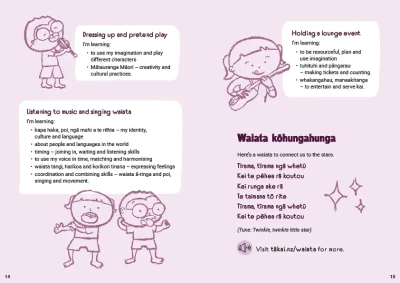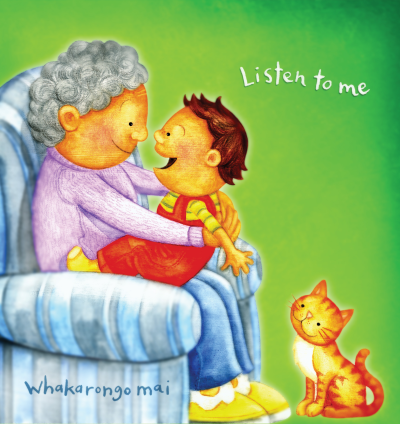
Pretend play
Tamariki learn many skills from pretend play, such as negotiating and co-operating. Whānau can encourage tamariki by asking questions and providing materials.
Pretend play and dressing up help tamariki to use their "imagination and play different characters" and encourages "mātauranga Māori - creativity and cultural practices" (see Whakatipu Te Mahuri, page 14).
- What sort of pretending have you been noticing in your tamaiti?
- What do you think your tamaiti was learning?
Conversation ideas
Ask whānau:
What can tamariki learn from pretend play?
Research shows there are many reasons why imaginative play is important for a child’s development. It helps them to:
- understand that people have different thoughts and feelings – this is sometimes called having a ‘theory of mind’
- have mental flexibility, which leads to creativity
- think in different ways, such as using fantasy and symbols, integrating information from different contexts and coming up with different ideas
- express a range of feelings
- start learning self-regulation – showing less aggression, being able to wait to get what they want, speaking pleasantly and showing empathy
- practise their communication skills through taking on different roles
- learn how to negotiate – to give and take
- co-operate and collaborate
- learn to play fair
- learn how to problem-solve.
So from this list it looks as though playing pretend games is linked to improved thinking, communicating and getting along with others.
Try an activity
Play dress ups
Imaginations are stimulated by pretend play, like dressing up.
How can whānau help tamariki?
Provide opportunities for pretend play by:
- inviting their friends to play with them
- encouraging tamariki to use things from home when they’re pretending
- asking open-ended questions such as:
- What do you think a … would wear?
- What sort of gear would we need for that job?
- What could you use for a …?
- What would happen if we …?













